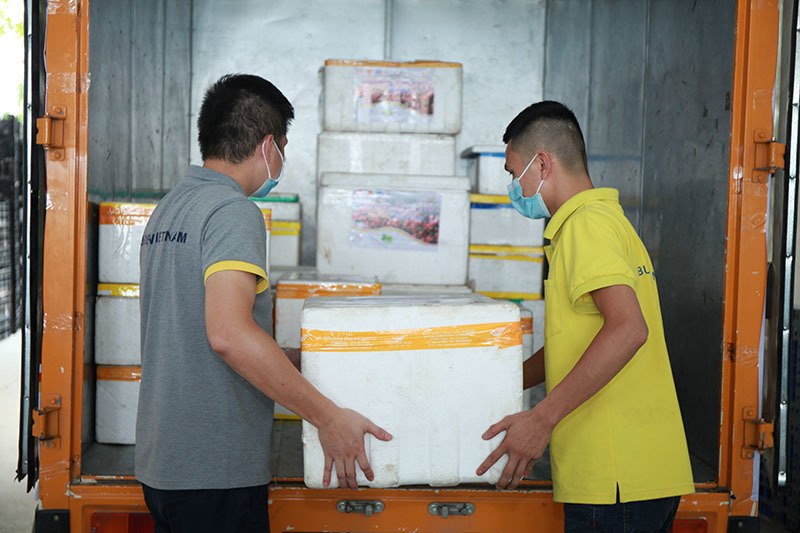Vietnam: Delivery competition turns more challenging during pandemic
Many forwarding companies have found it difficult to deliver goods as there are not enough deliverymen.
Amid rising demand, various delivery apps and delivery firms have recently been set up, including Giao Hang Nhanh (fast delivery), Giao Hang Tiet Kiem (economical delivery), Ninja Van, Best Express and AhaMove, now competing directly with the big players in the field, such as Vietnam Post, Viettel Post and DHL.
Technology firms have jumped on the bandwagon. Grab announced a plan to pour $500 million into Vietnam in the next five years to develop financial technology solutions, and new mobile and logistics technologies. Food and goods delivery will continue to be developed, together with transportation service.
Lalamove has successfully called for $300 million from two investment funds. It announced that it will focus on developing technological platforms and apps and integrating new technologies in a plan to expand in the Asian market.
The advantages of the new delivery service providers are technology and connections with partners, such as taxi drivers and trucks. The connection allows them to expand their networks quickly.
In their chains, deliverymen act as partners who receive commissions based on the number of orders they fulfill every day. Meanwhile, the companies don’t have to pay salaries or take out insurance policies for deliverymen.
With low delivery fees, quick service, and technology usage, the new delivery firms have been welcomed by customers. Some of them have become as well known as established firms.
Analysts said delivery firms are focusing on upgrading their systems to quickly classify parcels and minimize errors in an effort to shorten delivery time.
Service providers now offer door-to-door delivery, automatic calculation of transportation fee, and direct connection between online sellers and consumers nationwide through e-commerce sites.
Struggling to survive
As delivery companies compete with each other by providing services at below production costs, some of them have gone bankrupt as they could not manage the workforce and cash flow.
In 2018, GNN Express announced that the it would stop operating, following financial problems. The firm could not balance receipts and expenses, misusing money from COD service for other purposes. The crisis led to a loss of control, causing goods to get stuck or lost.
Many delivery firms are facing difficulties. As many partners are not working during the pandemic, deliveries have been delayed with thousands of orders unfulfilled.
A representative of a delivery firm said with 500 shippers, including collaborators, about 11,000-12,000 orders can be handled a day. The number of goods for each order has increased by 4-5 times. Many residential quarters in HCMC are under quarantine, so it takes more time to wait for clients to receive goods.
“Shippers are stopped at checkpoints. They have to wait for clients to come from quarantine zones to get deliveries,” she explained.
The overloading has made shop owners suffer. Luu Quang Tuan, the owner of a household appliance shop in Hanoi, said he ordered the service in early July, but the product has not reached consumers yet.
When checking the delivery process online, he realized that the product is still in the warehouse in a district in HCMC.
“The client got angry about the late delivery. He wanted to cancel the order because he needed the product during the pandemic,” Tuan said.
The high risks and low pay have prompted many shippers to give up their jobs.
N.T.L, a manager of a group of deliverymen, said the group was very large, but many members have left or shifted to work as taxi drivers.
Experts say that opportunities in the delivery sector are great thanks to the development of e-commerce. However, the competition is very stiff, and only the best service providers can survive.
D. Anh
Source: https://vietnamnet.vn/en/feature/delivery-competition-turns-more-challenging-during-pandemic-762861.html


 English
English




